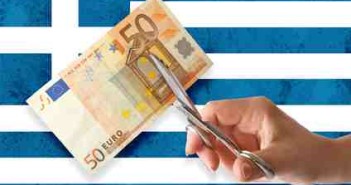The bailouts for Greece not only failed to solve the problem, but also included a mechanism for a recurring crisis every quarter. And this time, a committee appointed by the Greek finance ministry says the Greece lost control over its debt just as the EU / ECB / IMF inspectors arrive. Oops.
Last time it ended in a second bailout. How will it end now?
Towards the end of Q2, the “troika†delegation found that Greece missed its targets. This was widely expected. The delegation delayed the publication of the report for a long time. This time allowed the Greek parliament to adopt new austerity measures despite the harsh protests on the streets of Athens.
And this time, Greece not only misses its targets, but a parliamentary committee appointed a year ago reached a simple conclusion: Greece has lost control over its debt.
What did the Greek finance minister have to say about this?
… report lacks elements of credibility of other international reports,†Finance Minister Evangelos Venizelos said in a statement. “All necessary measures will be taken to upgrade and improve the credibility of the work of the budget committee.
Sure. Blame the messenger that your ministry appointed…
To be fair, Venizelos didn’t personally appoint the committee. It was his predecessor. Nevertheless, it will be hard to convince the international inspectors that Greece is on track. They already believe that the deep recession is not the only reason that Greece misses its deficit targets.
Will see another round of austerity measures, protests and another bailout? Will the Greek government survive another wave of protests?
Or will the leaders of Europe understand that this mechanism of bailouts simply doesn’t work. The opposition to bailouts becomes unsustainable.
This joins two other Greek issues:
- One Greek bank needed emergency funding for its operations.
- Finland insists on receiving collateral for its share in the Greek bailout. This could trigger a default.



